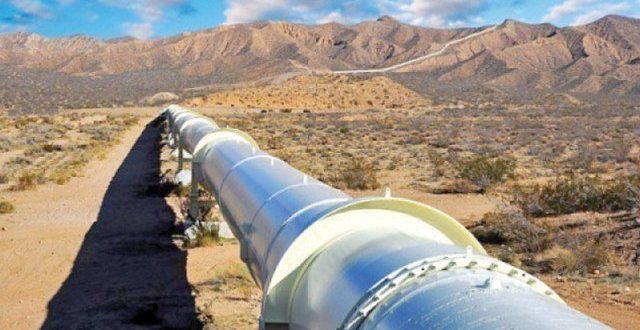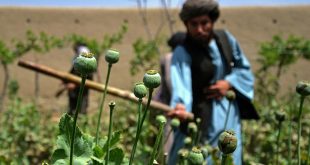AT News
KABUL: Pakistan and Turkmenistan have begun talks to revive the crucial Turkmenistan–Afghanistan–Pakistan–India (TAPI) gas pipeline project which has been stalled over the past years. Reports suggest that a bilateral meeting will be convened in Islamabad in late June 2023 to discuss the technicalities.
For its part, Ashgabat is keen on moving ahead with the project, while energy-deficient Pakistan is willing to go ahead with or without India. And Kabul has said it is ready to raise a special force to provide security for the project (Business Recorder, May 13). Some sources have stated that the potential transit revenues could make up as much as 80 or 85 percent of Afghanistan’s central budget, providing added incentives for securing the area around the prospective pipeline.
In recent years, officials in Islamabad, Kabul and Ashgabat have been seriously considering a return to the project, which again came into the spotlight following the withdrawal of American forces and the Taliban’s takeover of Kabul in 2021. The insecurity and political instability in Afghanistan has so far been the main hurdle preventing the pipeline’s construction. Nevertheless, Taliban leaders have already assured Turkmenistan that they will provide adequate security for the project (Express Tribune, February 1, 2022). According to a plan announced by Taliban spokesperson Bilal Karimi in January 2022, Afghanistan “will deploy a 30,000-member security unit for the security of the TAPI project. They will be providing security along the route of the project in all parts of the provinces where the pipeline is being constructed” (Pipeline-journal.net, January 17, 2022).
Overall, the TAPI pipeline is planned to stretch for over 1,100 miles with the capacity to transport 33 billion cubic meters (bcm) of natural gas each year from the Galkynysh Gas Field in Turkmenistan to the Indian city of Fazilka via Afghanistan and Pakistan (Business Turkmenistan, August 23, 2022). The project was initially conceived in the early 1990s; however, the pipeline consortium was not announced until 2014 with an estimated cost of $10 billion at that time. In 2018, construction began on the pipeline but was soon stopped due to security reasons after workers clearing the area were killed by unknown assailants (Pakistan Today, January 18, 2022).
 Afghanistan Times
Afghanistan Times




